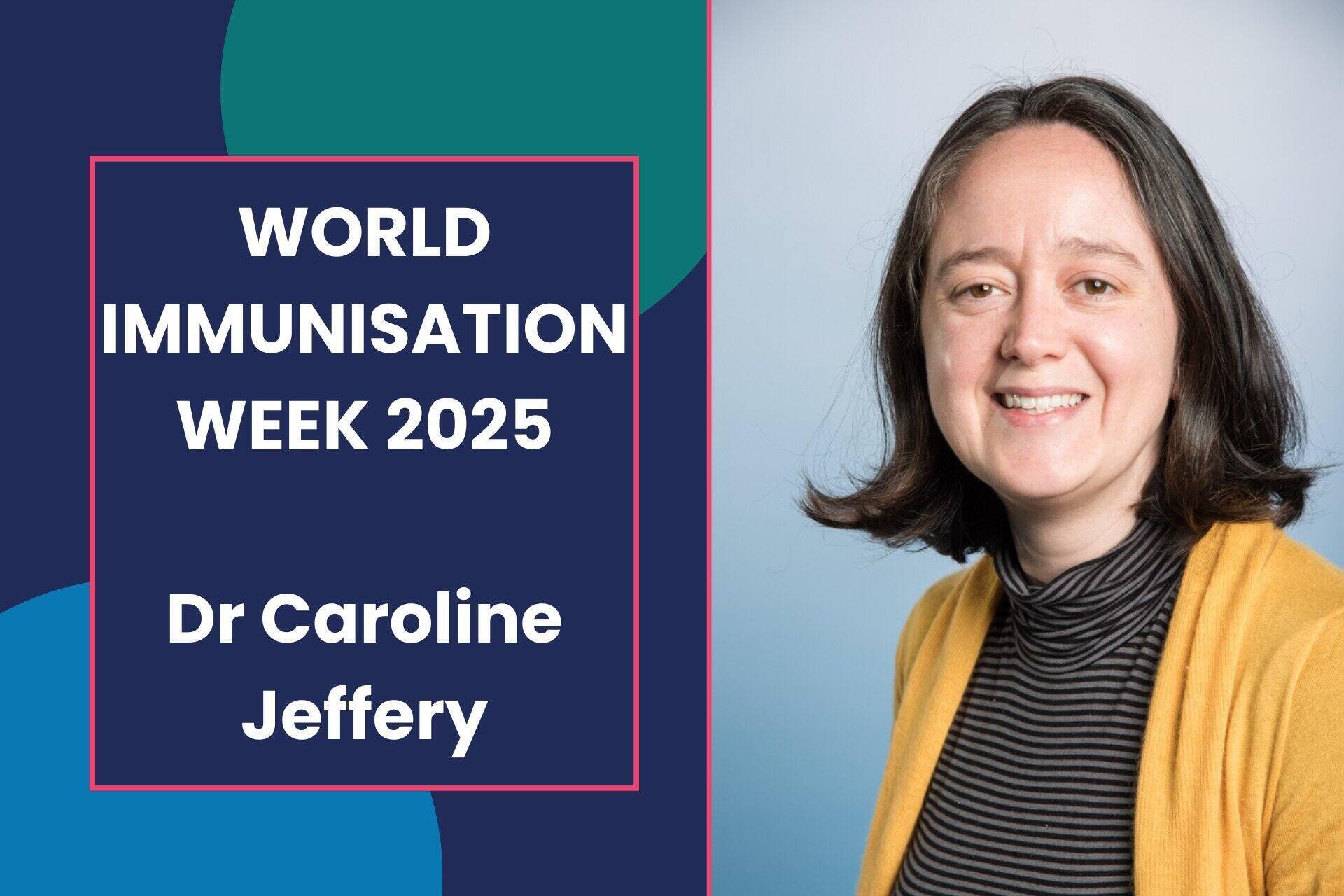
To kickstart our World Immunisation Week campaign, Dr Caroline Jeffery tells us about her research into influenza vaccines – the FLUVUE project (InFLUenza Vaccines - in Use Epidemiology).
I’m a Biostatistician and Research Associate at the Centre for Global Vaccine Research in the Department of Clinical Infection, Microbiology and Immunology, working on the FLUVUE project. Led by Dr Dan Hungerford, FLUVUE is funded by a pharmaceutical company named CSL Seqirus, via The Pandemic Institute.
Influenza infection and influenza-like illnesses are a significant burden on primary and secondary care. The FLUVUE project aims to increase our knowledge of the association between vaccination and these health outcomes. Influenza vaccination is routinely given to people over 65 years old, children and adults with existing health conditions. The vaccination season typically runs from September to March, and vaccines are usually administered to adults in GP practices or pharmacies. The vaccine prevents disease or reduces the severity of illness.
Influenza strains vary each year, and so updated vaccines are needed. Consequently, the effectiveness of the vaccine varies every year in different populations. For example, the vaccine effectiveness was 50% and 30% among those over 65 years old with lab-confirmed influenza in 2018 and 2023, respectively. The uptake of vaccination also varies by season. Before the COVID-19 pandemic, the uptake was slightly below the World Health Organization’s target of 75% among those over 65 years old. Since 2020-21, it has been above target, although it has been reducing since.
Our research
The FLUVUE project has two active studies. One study aims to investigate the effectiveness of influenza vaccines in reducing poor health outcomes beyond acute infection, in adults who are hospitalised for respiratory conditions and have lab-confirmed influenza. We use data from primary care, secondary care and laboratories in Merseyside and Cheshire called CIPHA (Combined Intelligence for Public Health Action platform).
We look at outcomes such as:
- Length of stay in hospital
- Death
- Referral to critical care
- Death within six months of discharge from the hospital
- Readmission to hospital
- Attendances to GP or the emergency department
- Health-seeking behaviour, e.g. vaccination uptake after hospitalisation.
Assessing how these outcomes differ by vaccination status in different populations allows us to understand the wider impact of vaccination on patient health outcomes.
The second study investigates the demographic, social and geographical factors that influence influenza vaccine uptake and estimates how higher vaccine uptake affects health inequalities. This study also uses the CIPHA data and other information available at the small area level, such as population density, average distance to nearest GP practice, percentage of people in care homes, and internet use. The statistical models for this work look at the association between vaccine uptake and other area-level variables, and the number of hospital outcomes for respiratory conditions. With these analyses, we can determine whether some areas vary from the model predictions and understand how targeted vaccination campaigns may improve uptake.
In the future, we would like to quantify the indirect benefits of influenza vaccination in Cheshire and Merseyside and the benefits of expanding the offer of free influenza vaccination to people aged 50-64 years. We would also like to adapt some of the methods developed in the context of influenza vaccination to other vaccines, from an epidemiological perspective.